Share

The New Statesman | UK politics and culture
Why Love Actually has ruined politics, with Jonn Elledge
•
In a special festive edition of the New Statesman Podcast, NS columnist Jonn Elledge speaks to Rachel Cunliffe about the highs and lows of the year, how Love Actually messed up our politicians, and why residents of a town in Sweden spend every Christmas trying to burn a wooden goat.
If you have a question for You Ask Us, go to newstatesman.com/youaskus
You can find Jonn Elledge’s books Conspiracy and The Compendium of (Not Quite) Everything at all good bookshops, and hear him talk about Conspiracy on the NS podcast.
More episodes
View all episodes
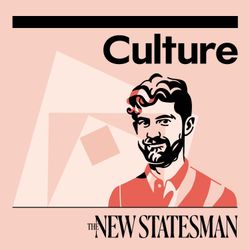
Why fiction matters - Deborah Levy
46:13|The novel is a living thing, argues author Deborah Levy in the New Statesman Goldsmith's Prize lecture.Tom Gatti hosts Deborah Levy, author of Swimming Home and The Man Who Saw Everything, to deliver a special lecture live from the Southbank Centre in London.Presented in partnership with the Goldsmiths Prize and the Southbank Centre, and recorded at the Southbank Centre.Watch the video: https://www.youtube.com/watch?v=sHFN7ZY9lzM
The rise of the "super-council" - plus, assisted dying interview with Kim Leadbeater
28:13|Are local council changes "an attack on democracy"? Rachel Cunliffe and Megan Kenyon join Hannah Barnes to discuss changes to the rules governing local elections, which Ed Davey and Nigel Farage have attacked as anti-democratic. They answer a listener question about why their local council can "delay my right to vote". Also in this episode, Megan Kenyon meets Kim Leadbeater for an update on the assisted dying bill, and we answer your questions about the checks and balances that would apply if the bill were to pass.Submit a question for us to answer on a future podcast: www.newstatesman.com/youaskusGet our free daily politics newsletter, Morning Call: morningcall.substack.comSubscribe to the New Statesman. Get your first five weeks for just £5 at www.newstatesman.com/feb25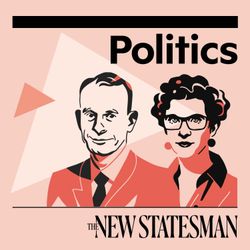
A Labour crash is coming
29:52|Keir Starmer is making a radical shift to appease Reform and "blue labour"."There has been a conservative revolution going on around the world," says Andrew Marr - and it leaves Keir Starmer with some hard choices.Andrew joins Hannah Barnes to explain why the prime minister is making a "handbrake turn", and how a new group of MPs known as Blue Labour are having an outsized impact on Labour policy.Hannah also speaks to Blue Labour member David Smith MP, who claims that the group has more members than are currently known.Ask a question for us to answer in a future episode: www.newstatesman.com/youaskus Get more politics coverage every day direct to your email inbox by signing up for our daily politics newsletter: morningcall.substack.com Save money on a New Statesman subscription to get full access to all our reporting and analysis from just £5 for your first 5 weeks: www.newstatesman.com/feb25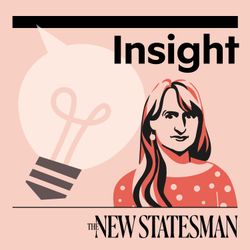
Who should decide how our children are taught?
22:22|The freedoms that the UK's academy schools have been granted could be curtailed. Labour's Children's Wellbeing and Schools Bill proposes centralising and standardising decision making across state schools in the UK. The Education Secretary, Bridget Phillipson, claims this will improve conditions for every student across the country. Katharine Birbalsingh, who has been called "Britain's strictest headteacher", is highly critical of these developments, calling them cultural Marxism. However, senior educator Leora Cruddas - who leads an organisation representing two thirds of UK academies - has welcomed many of the measures in the bill. Pippa Bailey is joined by Birbalsingh, Cruddas and the New Statesman's Hannah Barnes to discuss who should decide how and what children are taught. Ask a question for us to answer in a future episode: www.newstatesman.com/youaskus Get more politics coverage every day direct to your email inbox by signing up for our daily politics newsletter: morningcall.substack.com Save money on a New Statesman subscription to get full access to all our reporting and analysis from just £5 for your first 5 weeks: www.newstatesman.com/feb25
How can we trust what we see online? | Sponsored
20:04|The rapid rise of generative AI has revolutionised creativity while also raising significant challenges. The rapid rise of generative AI has revolutionised creativity while also raising significant challenges. In this episode, we explore how responsible innovation can reduce misinformation's impact and protect creators. Host Jon Bernstein is joined by Adobe’s Head of Policy and Government Relations EMEA Stefanie Valdés-Scott, Vale of Glamorgan MP Kanishka Narayan and AI and deepfake expert Henry Ajder.Our panel discusses the balance between risk and opportunity in AI development, as well as how to approach AI innovation ethically. They talk about how government, industry and creators might work together to create a safer, more reliable digital landscape and address the impact new AI copyright laws might have.Learn how government policies and industry initiatives like the Adobe-led Content Authenticity Initiative are fostering innovation and building a more trustworthy and transparent digital ecosystem.
Trump's Florida Project: how the Sunshine State became the centre of power
28:30|Ten years ago the sunshine state was mainly known for its outlandish stereotypes: swamps, gators, retirees, Disneyland all the time. But now power is shifting.How did that state that was once the political joke of America become the nation’s centre of power?Tom Gatti is joined by Gary Mormino author of Land of Sunshine, State of Dreams: A Social History of Modern Florida, and New Statesman contributor Lily Lynch.Read: Donald Trump's Florida project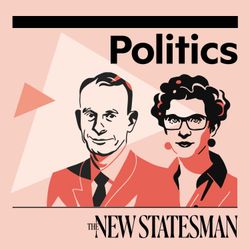
How America runs Britain
30:06|US investment already owns much of the British high street. Are "ignorant" politicians "selling the UK down the river"?As Donald Trump announces new tariffs on trading partners around the world, Hannah Barnes and Rachel Cunliffe are joined by Angus Hanton, author of Vassal State, to explore how the UK economy is, in many ways, "in thrall" to the US.They also discuss Trump's shock declaration of intent to "take over" the Gaza Strip. Later in the show they're joined by George Eaton to analyse Keir Starmer's great EU reset - and discuss whether the Prime Minister can please both Europe and the United States (spoiler: he can't).Ask a question for us to answer in a future episode: www.newstatesman.com/youaskusGet more politics coverage every day direct to your email inbox by signing up for our daily politics newsletter: morningcall.substack.comSave money on a New Statesman subscription to get full access to all our reporting and analysis from just £5 for your first 5 weeks: www.newstatesman.com/feb25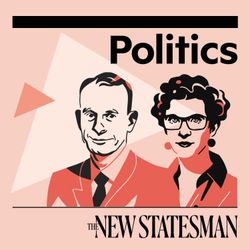
Does Morgan McSweeney really run Labour?
27:57|Andrew Marr is joined by the authors of Get In: The Inside Story of Labour Under Starmer, Gabriel Pogrund and Patrick Maguire. But while this is ostensibly the story of Starmer's Labour, who really runs the party behind the scenes?Sign up to the New Statesman's daily politics newsletter: Morning Call Submit a question for a future episode: You Ask Us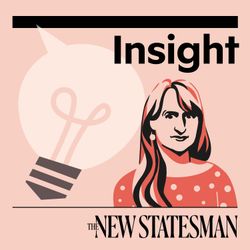
"It's guided by six rats": The battle for a life-changing drug
28:46|For some with epilepsy, valproate is the only medication which can control their seizures. But for decades women say they were not made aware of the risk this drug posed for their unborn children.Today we know around 11% of the children born to women who take valproate during pregnancy have major congenital disorders. 30-40% experience other conditions including delays in early development, poor language skills, and lower intellectual abilities. There’s also an increased risk of autism spectrum disorder.Restrictions on how the drug should be used have since been tightened. But this week on Insight we hear from neurologists who believe the system might have overcorrected as a result of this tragedy, causing more harm than good.Kate Lamble is joined by Janet Williams, Hannah Barnes, and Dr Dominic Heaney.